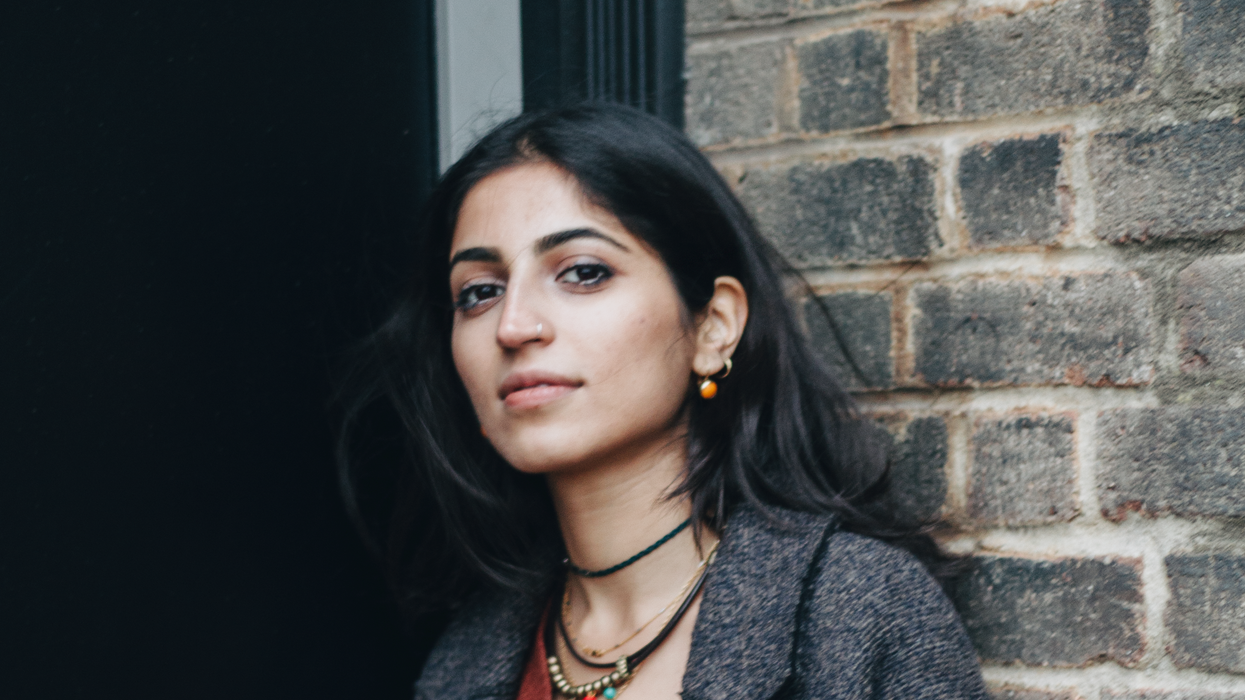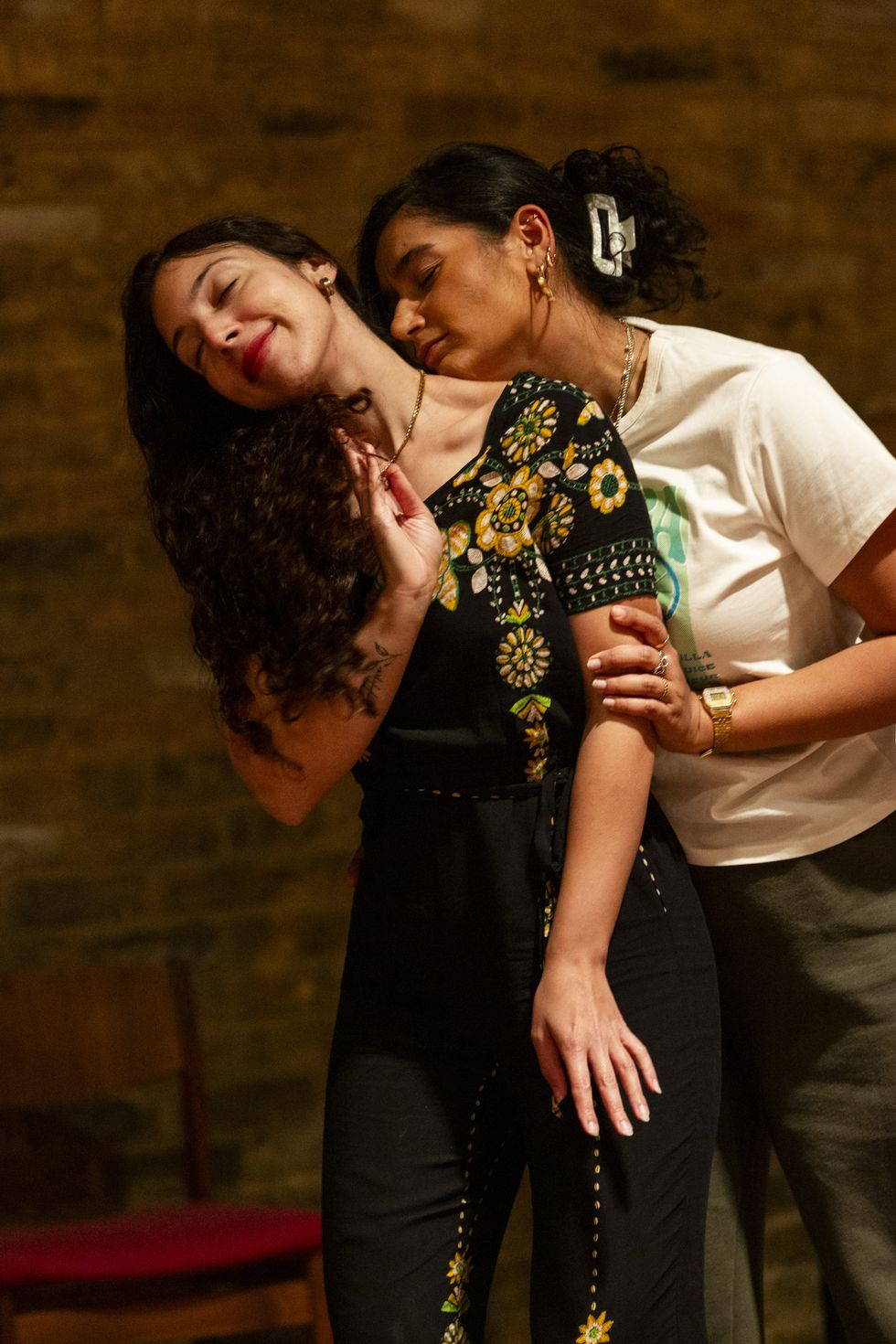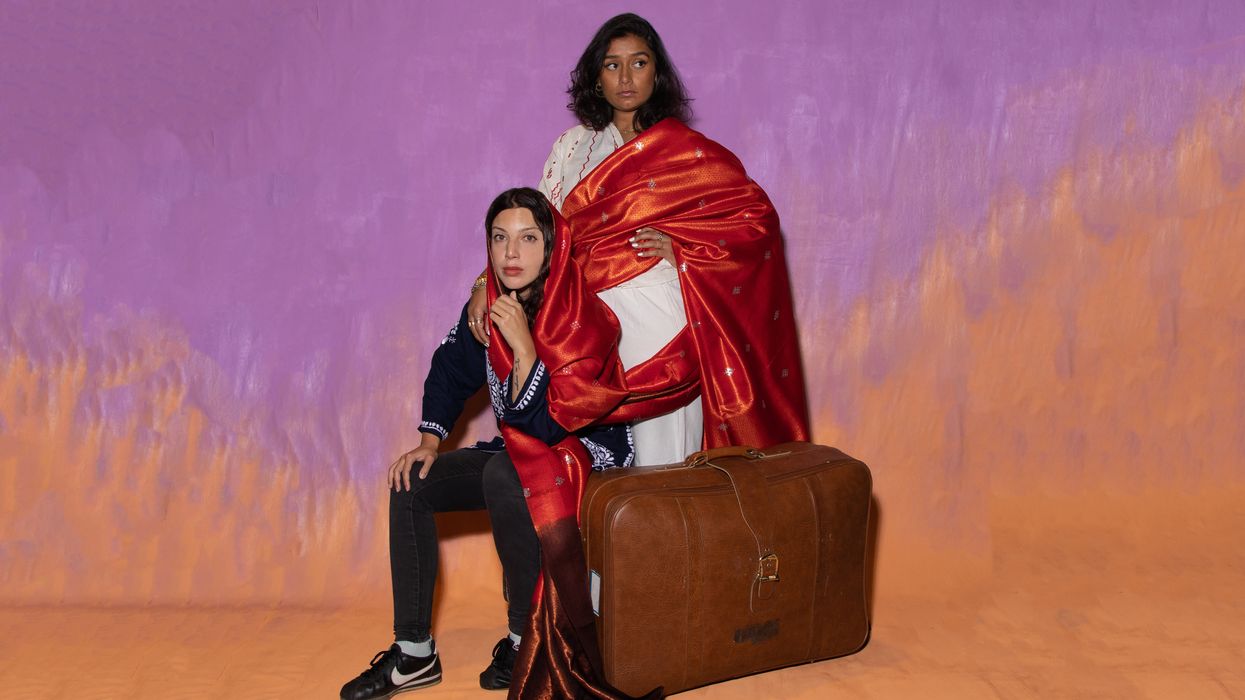A NEW play explores the issues faced by this current generation of immigrants and questions the definitions of freedom and liberation, its playwright has said.
Permission, written and co-produced by Hunia Chawla, casts a questioning eye on the trope of ‘the oppressed Muslim woman’ and examines the links between patriarchy, protest, and the global political order.
In an interview with Eastern Eye, Chawla said, “There are not many voices of contemporary immigrants in today’s world. The immigrant stories we hear are from the 1950s and 1970s.
“There is not much discussion taking place, and I believe it is an important discussion to have, given everything that is happening in the world. What is the role of protest? Who gets to decide what freedom is? This tension between the West and the East that we often observe offers a new way of looking at these issues.”
Through the stories of Hanna (played by Anisa Butt) and Minza (Rea Malhotra Mukhtyar), the 70-minute play, which moves between a Heathrow immigration queue and a rooftop in Karachi, explores themes such as friendship, sisterhood, identity politics, and state violence.
“I believe this trope (the oppressed Muslim woman) holds significant importance because it is frequently employed to justify numerous oppressive measures against people from the global south, Muslims, and specific nations,” Chawla, who is in her late 20s pointed out.
“Consider, for instance, the situation in Afghanistan. There exists considerable outcry regarding the Taliban, and quite rightly so, as they are indeed oppressive towards women. However, the response to this oppression is the assertion that “we must save Afghans from the Taliban,” which then leads to sending weapons and dropping bombs on that very country under the guise of liberation. One ends up killing the same people one purports to liberate, and the irony of this situation is not lost on observers
“Similarly, regarding the Israel-Palestine conflict, much of the propaganda centres on the claim that all Palestinians are oppressive towards women and gender minorities, and this assertion is then used to justify genocide. Identity politics has become so divorced from actual political violence that it proves harmful at times – indeed, it is sometimes weaponised in deeply damaging ways.”

According to the writer, who is from Karachi and lives in Yorkshire, the solution to the issue lies “simply in maintaining awareness”.
“It is crucial to recognise that Muslim women are not the only ones facing oppression, patriarchy exists everywhere. It is present here in the UK and across the globe, merely manifesting in different forms. The critical factor is determining who tells the story and who it serves.
“Currently, I observe a narrative structure featuring a saviour and the oppressed, with engagement conducted in a manner that serves the so-called saviour, who are, paradoxically, also the oppressors. This approach proves unhelpful and reinforces a colonial mentality of “we are modern and shall liberate you,” while considerable harm is being inflicted that remains largely unacknowledged,” she added.
In the play, Hanna tries to balance her political beliefs and personal choices by presenting herself as a ‘proper’ Pakistani woman. Her best friend, Minza, doesn’t care about appearing respectable to others. Their close friendship, played out in the busy city of Karachi, faces a major challenge when Hanna relocates to London seeking personal freedom and independence, meanwhile Minza stays behind in Karachi to campaign for political change through protests.
Chawla explained that while the play follows a chronological structure, showing Hanna’s journey from Karachi to London, it incorporates numerous flashbacks to her childhood and teenage years, creating a non-linear narrative.
She expressed her fascination with magical realism, noting that incorporating less naturalistic elements allows for greater character dimension and environmental shifts.
The play explores two distinct approaches to seeking freedom through its protagonists. Originally created as a 20-minute one-woman show and performed to a packed audience at The Space in London, Chawla developed the play into its current form over two years. She collaborated with director Neetu Singh to provide a “new vision” for the play.
She explained that Permission initially told the story of an immigrant girl from Pakistan dealing with the contemporary immigration process.
“The story expanded to explore the broader politics of immigration and questions of liberation and freedom, particularly for south Asian women navigating the immigration process and the complexities of dual identity between Karachi and London,” she said.
“Permission came from the essential question of what liberation means and who gets to define it,” Chawla said.

She noted that Western media often presents reductive narratives, such as in Bend It Like Beckham, where a brown girl from a conservative family becomes “liberated” through western ideas, reinforcing a colonial mindset that positions the west as the standard for modernity and liberation.
The British Pakistani artist highlighted the hypocrisy within this narrative, explaining that while the main character Hanna may feel more secure as a woman in the UK, she encounters censorship when attempting to speak about state violence, Palestine, or western complicity in global conflicts.
“The liberation question becomes complicated – you’re not free to do everything. There’s a condition to that freedom,” she observed.
The Asian actor-writer developed an interest in poetry from a very young age. She studied at the University of Warwick and pursued a career in the financial sector upon completing her studies. She completed the Old Vic Theatre Makers programme and is currently part of the Soho Writers Lab.
Chawla added, “Viewers don’t need to be politically engaged to appreciate the production, as the play’s strength lies in intimate moments and the beautiful portrayal of friendship and sisterhood between its characters. Permission operates on multiple levels, combining serious political themes with genuine entertainment value. It is genuinely funny and engaging.”
She expressed confidence in the production’s broad appeal, noting that previous performances attracted diverse audiences who responded enthusiastically.





